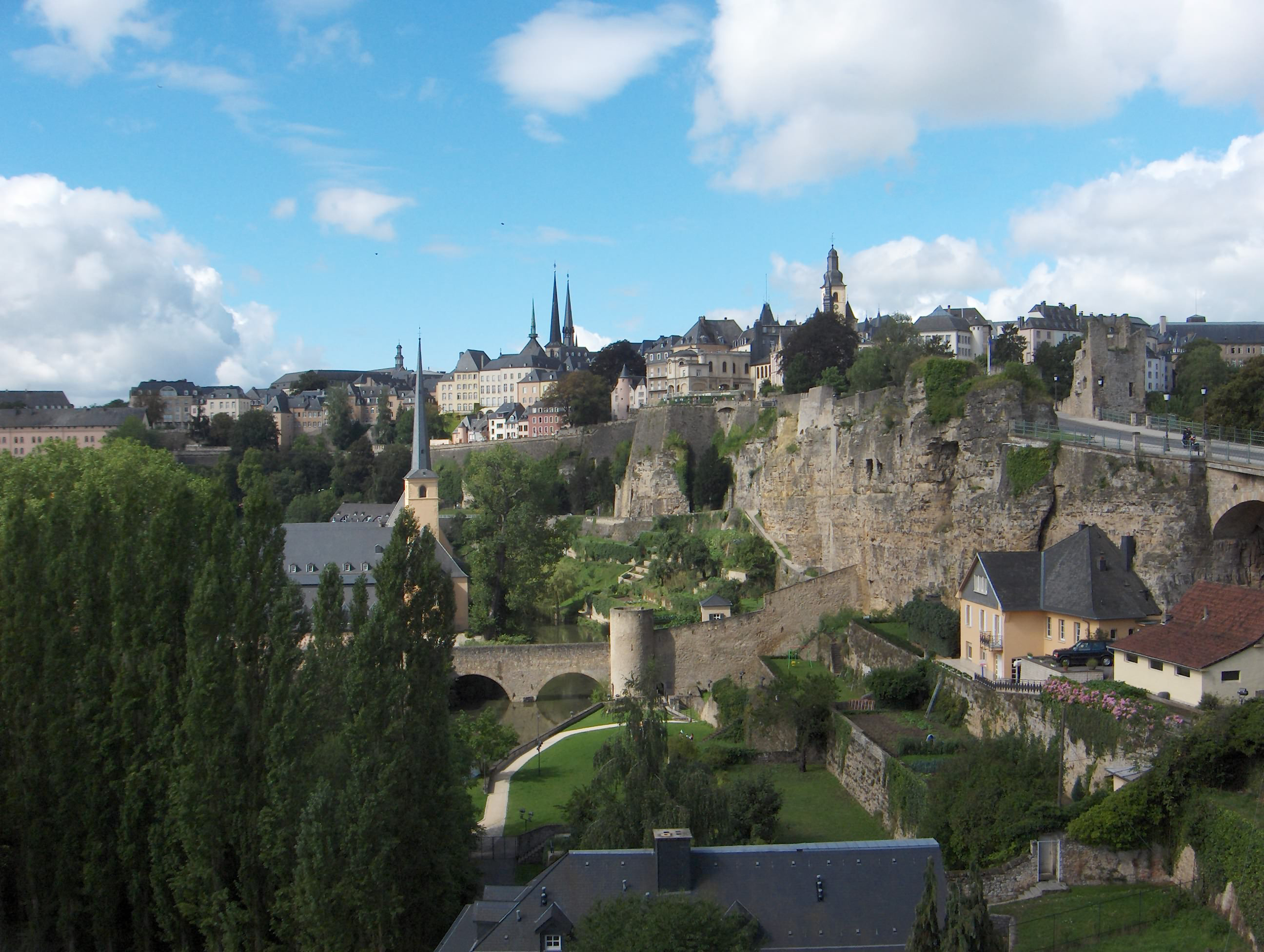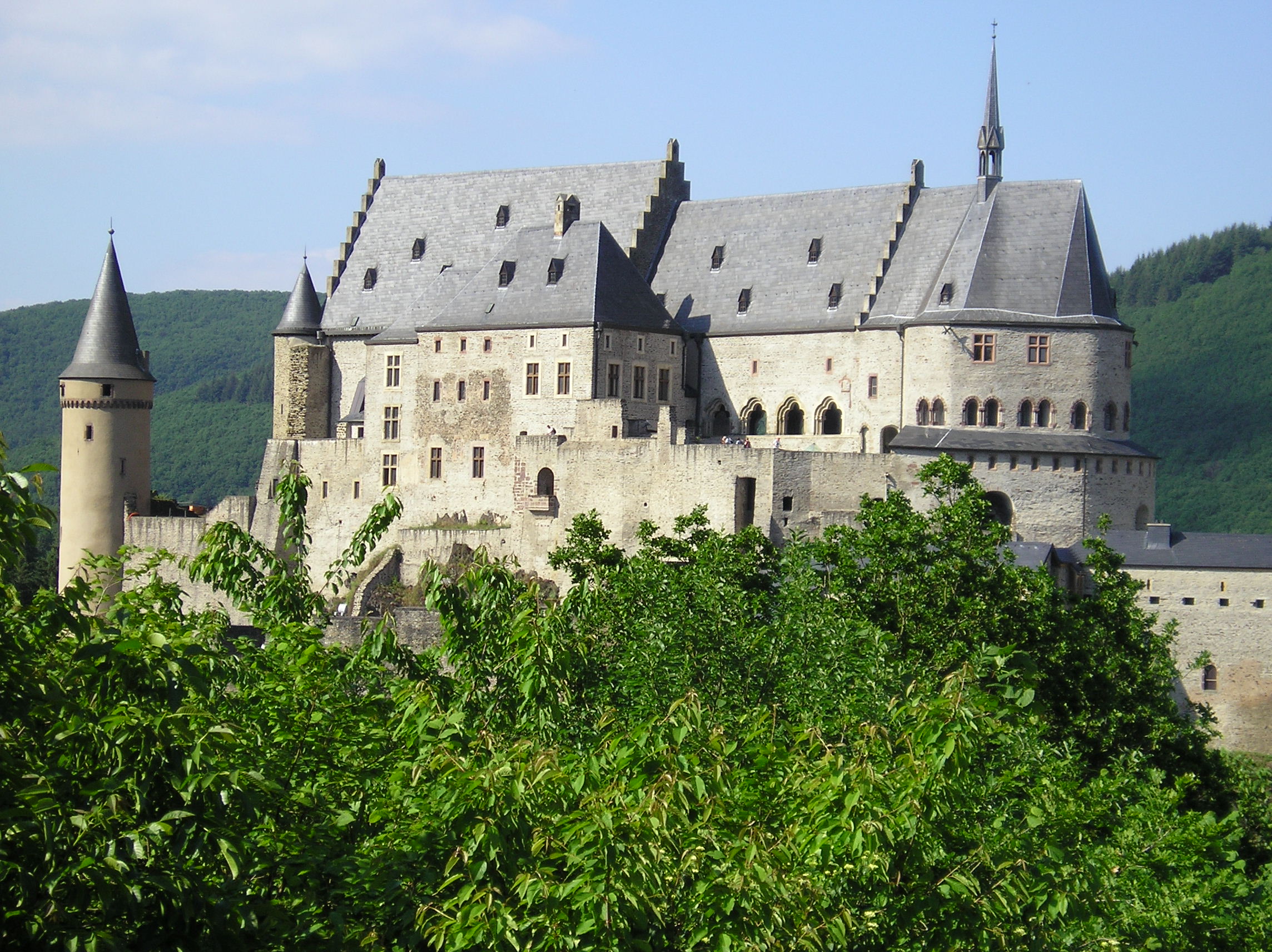List of cities in Luxembourg on:
[Wikipedia]
[Google]
[Amazon]
 There are twelve towns in Luxembourg, as defined by statute. Despite the status as
There are twelve towns in Luxembourg, as defined by statute. Despite the status as



town
A town is a human settlement. Towns are generally larger than villages and smaller than city, cities, though the criteria to distinguish between them vary considerably in different parts of the world.
Origin and use
The word "town" shares ...
s, they are not all contiguous urbanised areas. They are similar to communes
An intentional community is a voluntary residential community which is designed to have a high degree of social cohesion and teamwork from the start. The members of an intentional community typically hold a common social, political, religious, ...
, but have been given a separate legal status. There is a technical difference between the status of commune and towns, but this is limited in practicality. One difference is that '' Ă©chevins'' in towns are formally appointed by the Grand Duke, whereas ''Ă©chevins'' for other communes are appointed by the Minister for the Interior
Minister may refer to:
* Minister (Christianity), a Christian cleric
** Minister (Catholic Church)
* Minister (government), a member of government who heads a ministry (government department)
** Minister without portfolio, a member of government w ...
.
Terminology
The officially used terms for a town in the sense of this article are ''Stad'' (plural ''Stied'') inLuxembourgish
Luxembourgish ( ; also ''Luxemburgish'', ''Luxembourgian'', ''Letzebu(e)rgesch''; Luxembourgish: ) is a West Germanic language that is spoken mainly in Luxembourg. About 400,000 people speak Luxembourgish worldwide.
As a standard form of t ...
, ''Stadt'' (plural ''Städte'') in German
German(s) may refer to:
* Germany (of or related to)
**Germania (historical use)
* Germans, citizens of Germany, people of German ancestry, or native speakers of the German language
** For citizens of Germany, see also German nationality law
**Ger ...
, and ''ville'' (plural ''villes'') in French.
All of these terms may be translated as either "town" or "city". However, apart from the capital, Luxembourg
Luxembourg ( ; lb, Lëtzebuerg ; french: link=no, Luxembourg; german: link=no, Luxemburg), officially the Grand Duchy of Luxembourg, ; french: link=no, Grand-Duché de Luxembourg ; german: link=no, Großherzogtum Luxemburg is a small land ...
, and Esch-sur-Alzette
Esch-sur-Alzette (; lb, Esch-Uelzecht ; german: Esch an der Alzette or ''Esch an der Alzig'') is the second city of the Grand Duchy of Luxembourg and the country's second-most populous commune, with a population of 35,040 inhabitants, . It lie ...
, most of the places have none of the qualities that would award them the status of a "city" according to English usage.
History
Historically, this status was derived from a town's possession of atown charter
A city charter or town charter (generically, municipal charter) is a legal document ('' charter'') establishing a municipality such as a city or town. The concept developed in Europe during the Middle Ages.
Traditionally the granting of a charter ...
, but town rights
Town privileges or borough rights were important features of European towns during most of the second millennium. The city law customary in Central Europe probably dates back to Italian models, which in turn were oriented towards the traditio ...
are now granted and regulated by statute. In the modern era, the status was first conferred on 24 February 1843, when seven of the eight towns that had previously been granted charters were reinstated as towns (Clervaux
Clervaux (; lb, Clierf or (locally) ; german: Clerf) is a commune and town in northern Luxembourg, administrative capital of the canton of Clervaux.
The town's arms, granted in 1896, show three blackbirds on a gold ground in the chief of a red ...
was not). They were (in the order given in the law): Luxembourg City
Luxembourg ( lb, LĂ«tzebuerg; french: Luxembourg; german: Luxemburg), also known as Luxembourg City ( lb, Stad LĂ«tzebuerg, link=no or ; french: Ville de Luxembourg, link=no; german: Stadt Luxemburg, link=no or ), is the capital city of the G ...
, Diekirch
Diekirch ( lb, Dikrech or (locally) ; from ''Diet-Kirch'', i.e. "people's church") is a commune with town status in north-eastern Luxembourg, capital city of the canton Diekirch and, until its abolition in 2015, the district of Diekirch. The t ...
, Grevenmacher
Grevenmacher (; ) is a commune with town status in eastern Luxembourg, near the border with Germany. It gives its name to and is the capital of the canton of Grevenmacher, and, until its abolition in 2015, the district of Grevenmacher. The town ...
, Echternach
Echternach ( lb, Iechternach or (locally) ) is a commune with town status in the canton of Echternach, which is part of the district of Grevenmacher, in eastern Luxembourg. Echternach lies near the border with Germany, and is the oldest town in ...
, Wiltz
Wiltz ( lb, Wolz or (locally) ) is a commune with town status in north-western Luxembourg, capital of the canton Wiltz. Wiltz is situated on the banks of the river Wiltz. It was also a battleground in the Battle of the Bulge, near the e ...
, Vianden
Vianden ( lb, Veianen or (locally) ) is a commune with town status in the Oesling, north-eastern Luxembourg, with over 1,800 inhabitants. It is the capital of the canton of Vianden, which is part of the district of Diekirch. Vianden lies on ...
, and Remich
Remich ( lb, RĂ©imech ) is a commune with town status in south-eastern Luxembourg with a population of 3,645 inhabitants . It is the capital of the canton of Remich. Remich lies on the left bank of the river Moselle, which forms part of the border ...
.
For over sixty years, no more towns were added, but the vast demographic shift during the last part of the nineteenth century made it impossible to leave the arrangements unchanged. Thus, on 29 May 1906, Esch-sur-Alzette
Esch-sur-Alzette (; lb, Esch-Uelzecht ; german: Esch an der Alzette or ''Esch an der Alzig'') is the second city of the Grand Duchy of Luxembourg and the country's second-most populous commune, with a population of 35,040 inhabitants, . It lie ...
was promoted; Esch was followed by Differdange
Differdange ( lb, DĂ©ifferdeng or (locally) ; german: Differdingen) is a commune with town status in south-western Luxembourg, west from the country's capital. It lies near the borders with Belgium and France and it is located in the canton ...
, Dudelange
Dudelange (; lb, Diddeleng , german: DĂĽdelingen) is a commune with town status in southern Luxembourg. It is the fourth-most populous commune, with 19,734 inhabitants. Dudelange is situated close to the border with France.
, the town of Dudela ...
, Ettelbruck
Ettelbruck ( lb, Ettelbréck , german: Ettelbrück ) is a commune with town status in central Luxembourg, with a population of inhabitants.
History
Until 1850, both Erpeldange and Schieren were part of the Ettelbruck commune as well, but bot ...
, and Rumelange
Rumelange ( lb, RĂ«meleng ; german: RĂĽmelingen) is a commune with town status in south-western Luxembourg, on the border with France.
Populated places
The commune consists of the following villages:
* Rumelange
* Haut-TĂ©tange (lieu-dit)
Po ...
on 4 August 1907. An area of the (now extinct) commune of Hollerich
Hollerich ( lb, Hollerech) is a quarter in south-western Luxembourg City, in southern Luxembourg.
, the quarter has a population of 7,132 inhabitants.
Hollerich railway station is located on Chemins de Fer Luxembourgeois Line 70, which conn ...
was conferred the title on 7 April 1914, under the title of 'Hollerich-Bonnevoie
Bonnevoie ( lb, Bouneweg, german: Bonneweg) is an area of south-eastern Luxembourg City, in southern Luxembourg. It is divided between the quarters of North Bonnevoie-Verlorenkost and South Bonnevoie. It is the biggest neighbourhood in the ci ...
'; this status was lost when Hollerich was merged into Luxembourg City on 26 March 1920.
The last such statute affecting town status in Luxembourg was the ''Loi communale du 13 décembre 1988''. In the order outlined in that legislation (i.e. alphabetical, except with Luxembourg City first), the twelve communes with town status are: Luxembourg City, Diekirch, Differdange, Dudelange, Echternach, Esch-sur-Alzette, Ettelbruck, Grevenmacher, Remich, Rumelange, Vianden, and Wiltz.
In spite of their town status, some of the municipalities are very small and more like villages than towns. There are also municipalities without town status that have more inhabitants than some of the official towns (especially in the Luxembourg and Red Lands
The Red Lands form a geographic region in southern and south-western Luxembourg. They are so called for their red iron-laden earth. The Red Lands roughly correspond with the southern part of the canton of Esch-sur-Alzette, along the border with Fra ...
agglomerations, but also elsewhere, such as Mersch
Mersch ( ) is a commune and town in central Luxembourg, capital of the canton of Mersch. It is situated at the confluence of the rivers Alzette, Mamer and Eisch.
, the town of Mersch, which lies in the centre of the commune, has a population o ...
). Apart from the capital, Luxembourg, which is a city with now over 110,000 inhabitants, only the three or five next largest municipalities (''Esch-sur-Alzette, Differdange, Dudelange'', plus possibly ''Ettelbruck'' and ''Diekirch'') have long been urbanised enough to be described as towns. However, most municipalities are now growing with the continuously high figures of immigration to Luxembourg. There is a town planning project that aims at developing Ettelbruck, Diekirch and four bordering municipalities into a new centre called Nordstad ("North Town") with an expected population of 30,000.
List of towns



See also
*List of villages in Luxembourg
This is a list of populated places in the Grand-Duchy of Luxembourg. It is based on the official database of the National Administration of Topography (Administration du cadastre et de la topographie - ACT).
Furthermore it provides the Communes ...
Footnotes
{{DEFAULTSORT:List Of Cities In Luxembourg Luxembourg, List of cities inTowns
A town is a human settlement. Towns are generally larger than villages and smaller than cities, though the criteria to distinguish between them vary considerably in different parts of the world.
Origin and use
The word "town" shares an ori ...